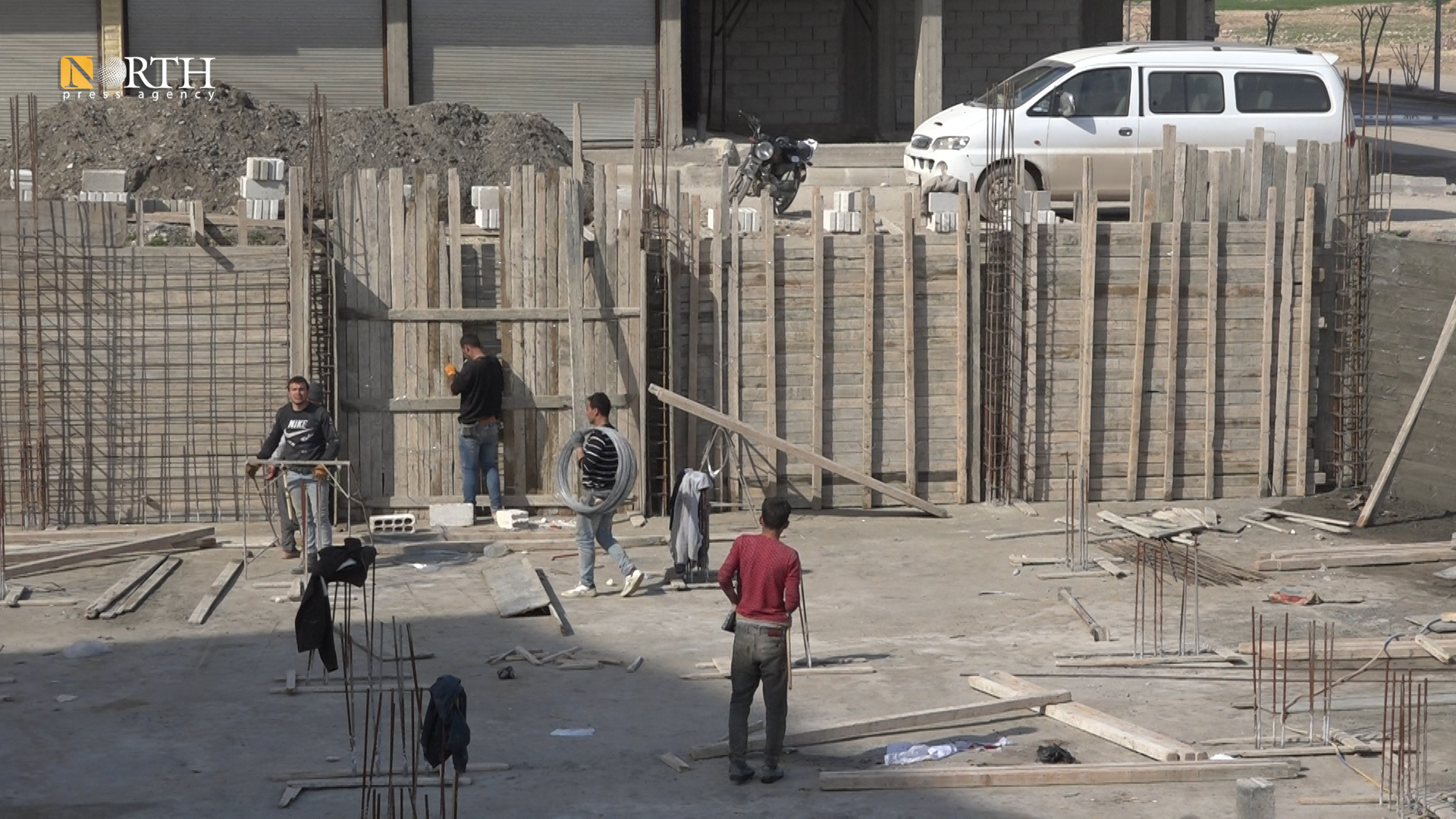KOBANI, Syria (North Press) – Workers in the city of Kobani, northeast Syria, say that the rise of the dollar exchange rate has caused difficulties in their living conditions and decreased their profits.
They believe that the rise of their wages does not keep pace with the accelerating exchange rates.
In the last few days, one dollar exceeded 3,500 Syrian pounds (SYP) in Kobani.
Worthless wages
Mahmoud Hami, a tire technician, said that the living conditions have become very hard after the “crazy” rise of the dollar exchange rate.
Hami added, “we used to change the tire of a car for 800 SYP and the dollar exchange rate was 500 SYP; now we fix the tire for 1,500 SYP, but the dollar has risen very much.”
The workers suffer from the high prices of their work supplies, and thus the increase of expenses relative to profit. For example, a tire adhesive tray which was sold for 7,000 SYP is now sold for 14,000 SYP.”
The number of workers registered at the Labor Union in Kobani is 2,800, while their number in Euphrates region is 5,000, according to the Labor Union of Kobani.
Wage raise is delayed
Kobani construction worker Hassan Shoukri said the living conditions have become more difficult with the rise of the dollar exchange rate.
Despite the increase of Shoukri’s wage from 6,000 SYP to 13,000 SYP, this did not keep pace with the large increase of foreign exchange rates, and “it does not meet my need though I have only one son,” he added.
“I was in Iraq two years ago, and one dollar was equal to 500 SYP. The wages were enough for us and we were saving some,” he noted.
Although the income of some workers is twice the salary of employees at the Autonomous Administration of North and East Syria’s (AANES) institutions and more than seven times an employee in government-controlled areas, this income is not sufficient to secure basic food and needs.
The residents of the city say they buy a 4-liter vegetable oil bottle for more than 20,000 SYP, and one kilo of sugar has exceeded 2,000 SYP.
Increased prices within hours
Many business owners depend on the exchange rates in determining their work returns, while it takes a long time to raise workers’ wages, according to a worker in Kobani.
Shoukri pointed out that the work in construction sector has improved during the current month, “but we are still subjected to days-long interruptions.”
The Co-chair of the Supply Directorate in Kobani, Ahmed Daban, said that the directorate has set the prices for the shops but it cannot control the work of private unions.
Daban added that the effect of the falling value of the Syrian pound has affected everyone, even the institutions of the AANES, and that “the Supply Directorate is unable to set prices due to the difference of exchange rates from day to day or sometimes within hours.”
Oppressed for several factors
The Co-chair of Labor Union of Euphrates regions, Siham Othman, said that the wages of the workers are low due to the decrease of the value of the local currency.
The Union is working in cooperation with the AANES to improve the wages of the workers according to the potential, and “the wages of the porters in the mills have increased form 2,000 SYP per ton in 2019 to 2,500 SYP at the beginning of 2021,” Othman added.
The wage of women working in agricultural lands was raised from 3,000 SYP per day to 800 SYP per hour of work, so that the daily wage of work reaches 7,000 SYP, she noted.
She stated the workers are still “oppressed” by the lack of adequate job opportunities, the economic crisis caused by the high dollar exchange rate, and the effects of winter on some work sectors.

